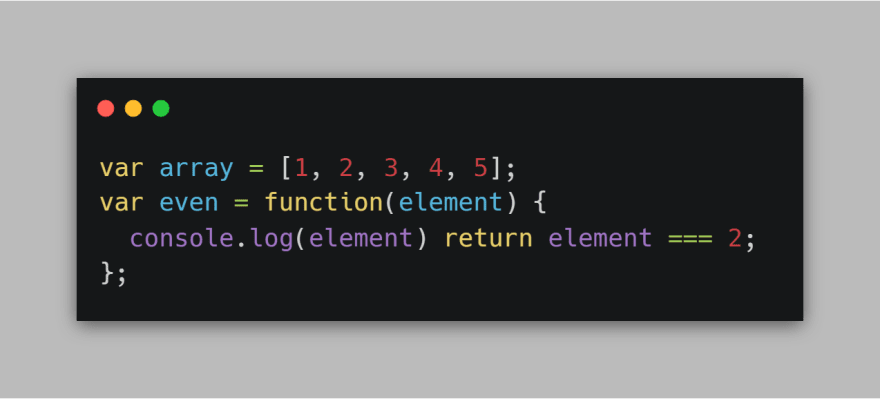

#Nodejs foreach code
You can even fire up a child node.js process and use the same code you were using previously.įor example: var child_process = require('child_process') This will work beautifully if the size of your input and output data is small compared to the computation that must be performed. The catch is that you can't / shouldn't share memory with this child process (not without a LOT of contortions and some native code) you have to pass messages. The upside is that the child process can do heavy computation in the background while your parent process is responsive to other events. įor what you are trying to do, there is another common pattern, forking off a child process to do the heavy lifting. The common pattern for a REST service is to fire up one node process per core, and put these behind a local load balancer like. Modern boxes have 8, 16, or even more cores, so this could leave 90+% of the machine idle. Node.js memory leak while attempting to connect to scratch project Need help with particular practical, having problems aligning my columns with foreach loops Console error, node.js. Node is single-threaded (as a deliberate design choice, see What is Node.js?) this means that it can only utilize a single core. There is a common pattern for doing a really heavy computation in Node that may be applicable to you. Out = await callback.call(ar, ar, i, ar) If youre trying to loop over a list while using async/await in Node.js (or the browser, for that matter), reaching for the. Return Promise.resolve(this).then(async (ar) => However a maybe easier to understand implementation is given on MDN: if (!)Ī = function(fun /*, thisp */)Īnd then call it with: processArray(, function () from './ArrayExtensions.js' Īwait ::asyncForEach(() => lots of work to do) ĪrrayExtensions.js export function asyncForEach(callback) Have a look at the specification of the algorithm. Here is some partial code - var jsonItems = I am using the bluebird promise lib but this is not a requirement.Nevertheless, I do need to use something like promise.all in the nested forEach to ensure that all property assignments have been made prior to resolving the enclosing routine. So in a nested promise.all I can't simply make assignments to my JSON array elements based on index. Not every element will necessarily involve making an async call.I need to use promise.all or some similar technique to determine when to resolve the enclosing routine.The pattern should be repeatable for n levels of nesting.I have coded a brute force solution, but I would like to learn a more idiomatic or clean solution. Normally, we can use foreach loop in PHP, JS etc, but when we are working on.

#Nodejs foreach how to
forEach () is a method on JavaScript arrays, not objects. Today now in this post i will show you how to use foreach object in NodeJs. It calls the callback with the value as the first parameter and the array index as the 2nd parameter. JavaScript's forEach () function takes a callback as a parameter, and calls that callback for each element of the array. I am creating another JSON object to store values obtained from this structure and so I need to be careful about keeping track of references in callbacks. How to Use forEach () with Key Value Pairs. The async method calls return array structures that in turn expose more async methods. I have an array like structure that exposes async methods.


 0 kommentar(er)
0 kommentar(er)
